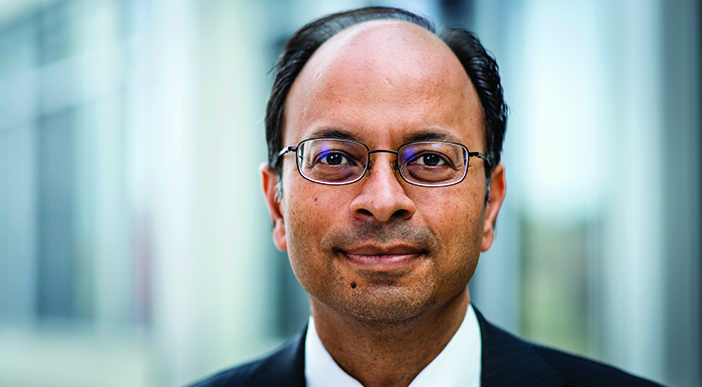Brown and the Medical School are part of the revolution.
It’s nearly impossible to read a medical journal these days and not see a mention of artificial intelligence. Frankly, it’s a lot to comb through and digest, and much of it is seasoned with strong perspectives either for or against AI. When the editorial staff of Medicine@Brown decided to weigh in on the topic, they found there was so much to say that they’re devoting much of this issue to it, to try to offer a balanced look at its pros and cons.
Many alumni and faculty have shared that Brown’s Open Curriculum and the Program in Liberal Medical Education, not to mention one of the leading computer science departments in the country, have created a fertile training ground for biomedical informatics and AI. Alums like David Lipman ’75, MD, James Cimino ’77, MD, Isaac Kohane ’81, MD, PhD, P’25, Chris Chute ’77 MD’82, DrPH, Mark Musen ’77 MD’80, PhD, Ken Mandl ’85, MD, MPH, and Atul Butte ’91 MMSc’95 MD’95, PhD, are all members of the National Academies in recognition of their field-defining work.
On campus, Provost Frank Doyle is leading conversations about AI in academia and has appointed the first associate provost for artificial intelligence, Michael Littman PhD’96. Given the implications of AI in teaching, ethical conduct of research, and original scholarship, these are important and necessary conversations.
It is well appreciated that the biological sciences, medicine, and health care are major areas where AI has the greatest potential to improve the quality of human life. Thought leaders like Dario Amodei have suggested that AI could compress the progress that human biologists would have achieved over the next 50 to 100 years into five to 10 years. The potential there is dizzying, and we need to build on our excellence in computational biology, applied math, and computer science to collaborate across disciplines at Brown to be part of this revolution.




